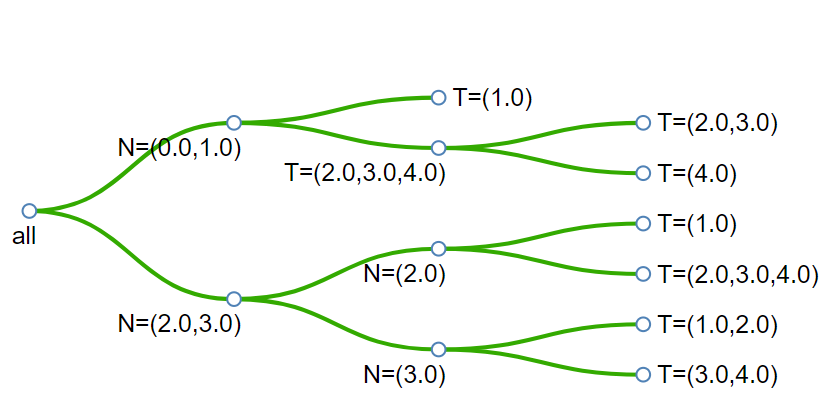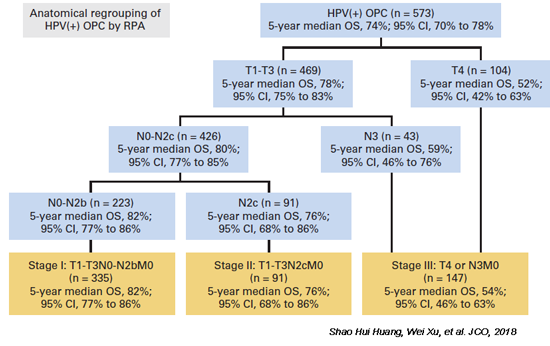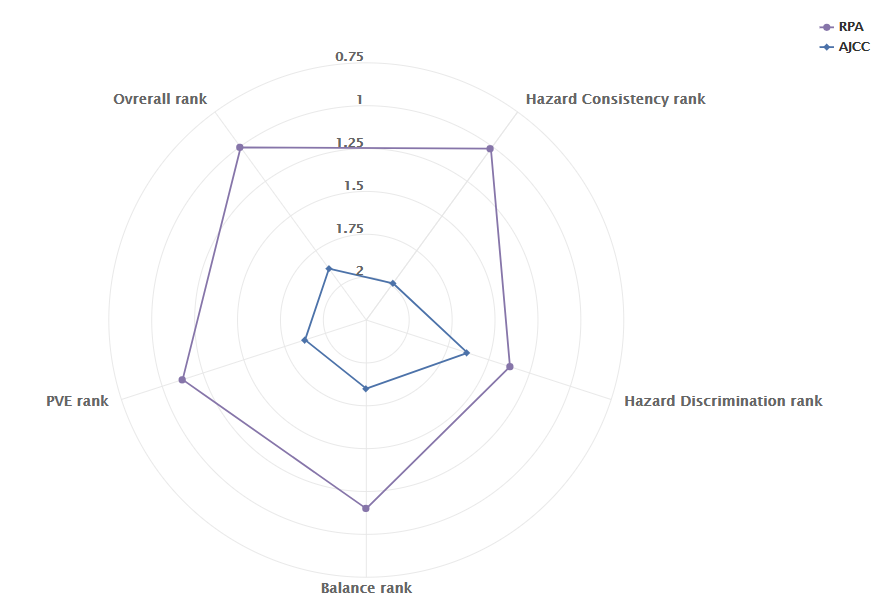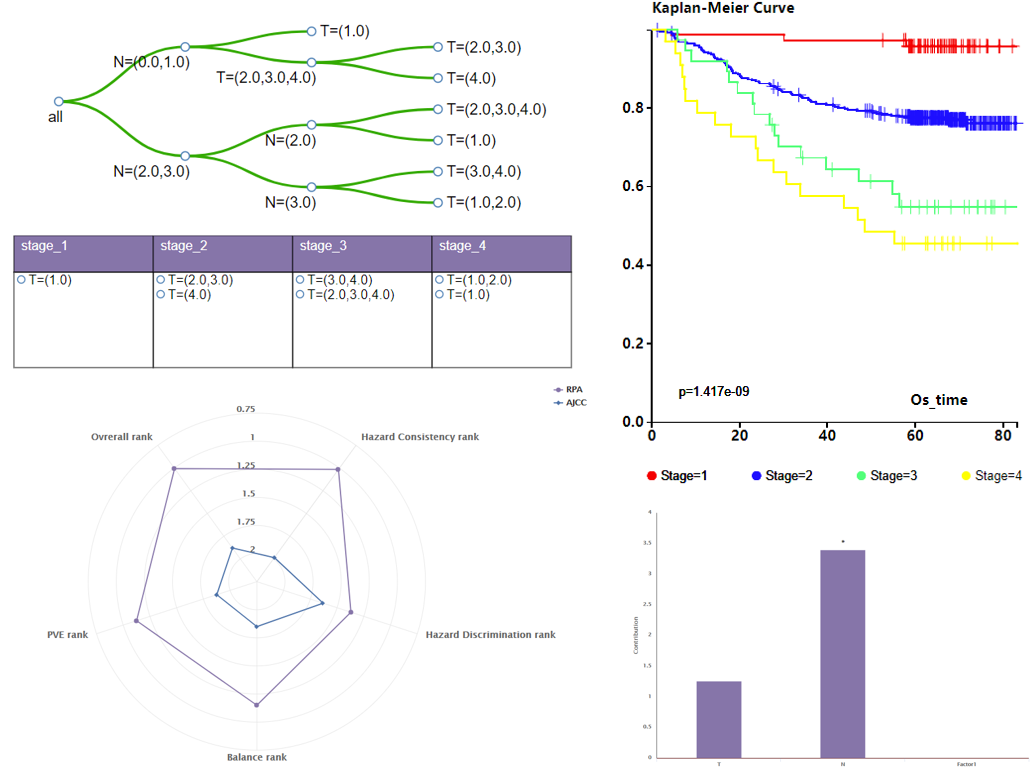Construct cancer staging model by Recursive Partitioning Analysis
Construct prognosis staging models by RPA algorithm
Performance comparison of different staging models with 4 evaluation criteria
Statistics, analysis and visualization
Get started!


Recursive Partitioning Analysis
Recursive Partitioning Analysis (RPA) is one of the most recognized methods for cancer prognosis staging. autoRPA combines RPA strategy and the log-rank test statistics to construct survival decision-making trees. According to their clinical knowledge and experience, users can further prune the survival trees generated by autoRPA in an interactive way.
Performances comparison for staging models
To evaluate and compare among different staging models, autoRPA establish a scoring system for evaluation. The evaluation of performance consists of four widely accepted criteria including hazard consistency, hazard discrimination, percent variance explained (outcome prediction), and sample size balance. To validate the rank of different models, autoRPA performed internal validation using bootstrap methods. To present the evaluation result in a more intuitive way, autoRPA will visualize the performance of all staging models in a radar map.


Statistics, analysis and visualization
The web server will conduct an automatic cancer staging by RPA algorithm and provide an adjustable survival decision-making tree with the help of D3 techniques. Besides, Kaplan-Meier survival curve, radar map, other statistical diagrams and tables are also provided for the evaluation and comparison of the prognosis staging models.